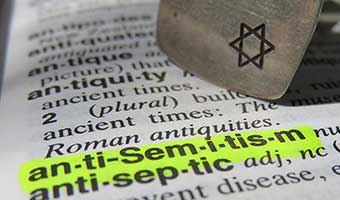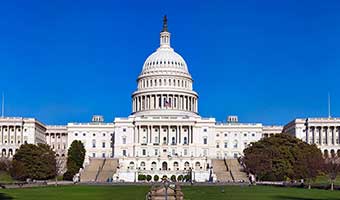By Karen Feit, Hadassah Board Member
For the baby boomer generation and the one that preceded it, Zionism in an integral part of our identities as Jews. We were the generations that either witnessed or grew up in the shadow of the Shoah. We raised funds and lobbied for the creation of a Jewish homeland and continued to support the nascent nation state with our voices, our feet, and our dollars. These acts were as natural as breathing for us. By contrast, we have trouble dealing with the attitudes of succeeding generations of American Jews whose attitudes towards Israel are often ambivalent at best. How could this have happened? Why don't they understand?
In many respects the answer lies in the context of the times. Pre 1967, Israel was the David of the Middle East, surrounded by malevolent Goliaths. The Six Day War changed the balance of the equation. While we rejoiced in Israel's victory, Israel lost its innocence as its borders expanded. The security provided Israel by the land it now controls, has been offset by both an increase in Arab population, and the conflicts and criticisms the occupation of the territories and the building of settlements has engendered both with Israel and in the international community. Gen X, Gen Y, and Millennials know Israel as a faraway place and the epicenter of the conflicts in the Middle East that have rocked their world, especially from 9-11 onward. The Shoah and the specter of anti-Semitism do not resonate for them the way they did for those of us who came of age in the 20th century. In conversation with young adults about to go off to college, as well as young parents in their thirties, I have learned first hand about their doubts about Israel, Zionism, and the Jewish future. In all cases, the people with whom I spoke came from Jewishly engaged and Zionist homes, and had been Jewishly educated as well.
In order to create successive generations of American Jewish Zionists, we must address issues that are uncomfortable for us, and treat their doubts and criticisms of Israel with respect. We must understand that in the minds of our young adults support for Israel is not a black and white issue. There are more gray areas than anything else. For example, our next generations question the morality of accepting support from groups who claim to be Zionists, but may also be anti-abortion and anti-gay. These young adults have seen much more persuasive PR from the Palestinian side of the Arab-Israeli Conflict than they have from the Israeli camp. They are not satisfied with our response that the media is biased. We need to do better at hearing their questions and formulating more reasoned, structured, and informative rational responses.
Now is the time to point out that both Israel and the United States are democracies whose citizens have the right to free speech, dissent, and protest. On both sides of the world, citizens freely elect governments, with which they are free to disagree. In neither case is every citizen satisfied with every outcome, nor is s/he prevented from trying to change it through the system. Both systems are flawed, but functional.
LIKUD and PeaceNow have their places in the Israeli political discourse. In order to reach our desired outcome as supporters of Israel, let's learn how to listen and respectfully question those whose views differ from ours. Let's, as Hadassah leaders, create a safe space to open dialogue with those who may not share our views, instead of always preaching to the choir as we wring our hands while the size of the choir shrinks.
The creative educators at MAKOM, the Israel engagement educational arm of the Jewish Agency, urge us to treat the Zionist question as we treat a family member about whom we care deeply: we must wrestle with its issues and hug it close to show we care. At the core, we must continually communicate with our extended Jewish family to learn, to grow, to reach new understandings, and to keep Zionism alive.
This article is part of the June/July edition of Women Who Learn. To obtain a PDF version of the full edition, email us at jewisheducation@hadassah.org.
Defining Zionism in the 21st Century
The word "Zionism" is often misunderstood. Hadassah's Defining Zionism in the 21st Century Series is an online monthly program that creates a welcoming opportunity for everyone to explore various perspectives of Zionism from the comfort of home. Each month, Hadassah brings in a new, remarkable speaker to talk about Zionism from his or her personal perspective. Our sessions are interactive, engaging, and will get you thinking in new ways about Israel, Zionism, and how they relate to you. Watch live discussions online featuring scholars, activists and community leaders.
Register at hadassah.org/definingzionism








